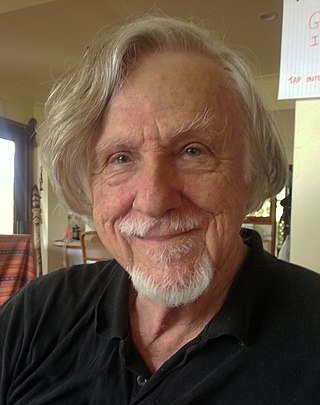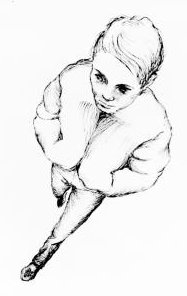Related Research Articles

The National Film Board of Canada is a Canadian public film and digital media producer and distributor. An agency of the Government of Canada, the NFB produces and distributes documentary films, animation, web documentaries, and alternative dramas. In total, the NFB has produced over 13,000 productions since its inception, which have won over 5,000 awards. The NFB reports to the Parliament of Canada through the Minister of Canadian Heritage. It has bilingual production programs and branches in English and French, including multicultural-related documentaries.

William Norman McLaren, LL. D. was a Scottish Canadian animator, director and producer known for his work for the National Film Board of Canada (NFB). He was a pioneer in a number of areas of animation and filmmaking, including hand-drawn animation, drawn-on-film animation, visual music, abstract film, pixilation and graphical sound. McLaren was also an artist and printmaker, and explored his interest in dance in his films.
Roman Kroitor was a Canadian filmmaker who was known as a pioneer of Cinéma vérité, as the co-founder of IMAX, and as the creator of the Sandde hand-drawn stereoscopic 3D animation system. He was also the original inspiration for The Force. His prodigious output garnered numerous awards, including two BAFTA Awards, three Cannes Film Festival awards, and two Oscar nominations.

Michael Dattilo Rubbo is an Australian documentarian/filmmaker.
Don Owen was a Canadian film director, writer and producer who spent most of his career with the National Film Board of Canada (NFB). His films Nobody Waved Good-bye and The Ernie Game are regarded as two of the most significant English Canadian films of the 1960s.
Colin Archibald Low was a Canadian animation and documentary filmmaker with the National Film Board of Canada (NFB). He was known as a pioneer, one of Canada's most important filmmakers, and was regularly referred to as "the gentleman genius". His numerous honors include five BAFTA awards, eight Cannes Film Festival awards, and six Academy Award nominations.
Boyce Richardson, was a journalist, author and filmmaker.
Pas de deux is a 1968 short dance film by Norman McLaren, produced by the National Film Board of Canada.
Tony Ianzelo is a Canadian documentary director and cinematographer.

Walking is a 1968 Canadian animated short film directed and produced by Ryan Larkin for the National Film Board of Canada, composed of animated vignettes of how different people walk.

Blake is a 1969 Canadian short documentary film produced by the National Film Board of Canada (NFB). The film was directed by Bill Mason, and his fellow filmmaker Blake James, who pilots his own aircraft and lives by a unique code. Blake is Mason's cinematic testimonial to his friend and his "hobo of the skies" lifestyle.

Thomas Cullen Daly was a Canadian film producer, film editor and film director, who was the head of Studio B at the National Film Board of Canada (NFB).
A Matter of Fat is a 1969 documentary film produced by the National Film Board of Canada and directed by William Weintraub. It chronicles the efforts of a 358-pound man, Gilles Lorrain, to lose half his body weight as part of a hospital supervised weight loss program.
John Spotton C.S.C. was a Canadian filmmaker with the National Film Board of Canada.
John Kemeny was a Hungarian-Canadian film producer whom the Toronto Star called "the forgotten giant of Canadian film history and...the most successful producer in Canadian history." His production credits include The Apprenticeship of Duddy Kravitz, Atlantic City, and Quest for Fire.

Albert Kish was a Canadian documentarian/filmmaker.
Robert Verrall is a Canadian animator, director and film producer who worked for the National Film Board of Canada (NFB) from 1945 to 1987. Over the course of his career, his films garnered a BAFTA Award, prizes at the Cannes Film Festival and Venice Film Festival, and six Academy Award nominations.
Julian Biggs (1920–1972) was a director and producer with the National Film Board of Canada and its first Director of English Production. Over the course of his 20-year career, he created 146 films, two of which were nominated for Academy Awards. His film 23 Skidoo (1964) received two BAFTA nominations, including the BAFTA United Nations award.
The 22nd Canadian Film Awards were held on October 3, 1970 to honour achievements in Canadian film. The ceremony was hosted by broadcaster Bill Walker.
Grierson is a 1973 documentary directed by Roger Blais for the National Film Board of Canada (NFB). It won, among other awards, the 1974 BAFTA Award for Best Documentary.
References
- 1 2 Evans 1991, p. 194.
- ↑ "Sad Song of Yellow Skin". nfb.ca. National Film Board of Canada. Retrieved 5 January 2023.
- 1 2 3 Piers Handling; Peter Morris; Andrew McIntosh. "Sad Song of Yellow Skin". Toronto International Film Festival . Retrieved 16 July 2012.
- 1 2 3 Rosenthal, Alan (16 January 2004). "Sad Song of Yellow Skin and Waiting for Fidel" (Interview with Michael Rubbo). Documentary Conscience: A Casebook in Film Making. University of California Press. pp. 232–244. ISBN 9780520040229 . Retrieved 16 July 2012.
- ↑ "NFB Production Wins Aussie Award". news.google.com. Retrieved 6 January 2023.
- ↑ "Sad Song of Yellow Skin". onf-nfb.gc.ca. National Film Board of Canada. Retrieved 3 February 2023.